SCM Studies in Worship and Liturgy (5 vols.)
Digital Logos Edition
Overview
Public worship has evolved into many diverse and beautiful traditions across the Anglican Communion. This collection brings together five works studying how the Eucharist, liturgy, prayer books, and other elements of worship have developed over the centuries. Explore the origins and significance of the Last Supper. Examine the influence of the Book of Common Prayer in the structure and worship of Anglican churches. Investigate the importance of interpretation and liturgy and how traditions have been passed from generation to generation. From the first century to today, these volumes are packed with insight into how Christian worship has developed.
In the Logos edition, these volumes are enhanced by amazing functionality. Important terms link to dictionaries, encyclopedias, and a wealth of other resources in your digital library. Perform powerful searches to find exactly what you’re looking for. Take the discussion with you using tablet and mobile apps. With Logos Bible Software, the most efficient and comprehensive research tools are in one place, so you get the most out of your study.
Explore the world of Anglican liturgy with the Alcuin Club Collection (10 vols.).
The Collect in the Churches of the Reformation is temporarily the only resource available on mobile.

Key Features
- Explores the origins and significance of the Eucharist
- Examines the influence of the Book of Common Prayer
- Investigates how Christian liturgy is passed between generations
Product Details
- Title: SCM Studies in Worship and Liturgy
- Series: Studies in Worship and Liturgy
- Publisher: SCM
- Volumes: 5
- Pages: 1,518
- Christian Group: Anglican
- Resource Type: Monographs
- Topic: Worship
Individual Titles
- Comfortable Words: Polity, Piety and the Book of Common Prayer by Christopher Woods and Stephen Platten
- Do This in Remembrance of Me: The Eucharist from the Early Church to the Present Day by Bryan D. Spinks
- Liturgy and Interpretation by Kenneth Stevenson
- Rethinking the Origins of the Eucharist by Martin D. Stringer
- The Collect in the Churches of the Reformation by Bridget Nichols
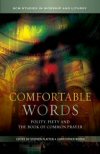
2012 is the 350th anniversary of the 1662 Book of Common Prayer, now widely used in the Church of England and throughout the Anglican Communion. Comfortable Words draws together some of the world’s leading liturgical scholars and historians who offer a comprehensive and accessible study of the prayer book and its impact on both church and society over the last three and a half centuries. The book is aimed at scholars and students in theological colleges, courses, and universities, but is accessible to anyone interested in the prayer book.
With fresh scholarly insight, this excellent collection of essays traces the influence of the Book of Common Prayer from its Tudor origins to the present day. This volume is essential reading for those with an academic interest in the history and liturgy of the Anglican Church as well as clergy and laity charged with leading worship today. As the Church of England comes to terms with having an unprecedented range of liturgical resources at its disposal, a critical consideration of Archbishop Cranmer’s masterly attempt at liturgical uniformity is both timely and challenging.
—Simon Jones, chaplain and fellow, Merton College, Oxford
Stephen Platten and Christopher Woods have brought together a set of impressively scholarly contributions to our understanding of the making of the Book of Common Prayer of 1662 and its fortunes over 350 years. The essays paint a vivid picture of a book that, since its inauguration, has been in dialogue with the communities it has sought to nurture in godliness. If it is no longer the only voice in the conversation, its claim to a distinctive role in defining what it means to be Anglican remains unchallenged.
—Bridget Nichols, visiting scholar, Sarum College
This engaging bird’s-eye view gives a sweep of the history of the use of the Book of Common Prayer, through the long period of its glory days, reigning supreme, widely treasured, and on to choppier modern waters, where we are no longer sure what place the BCP should have, and modern reforms lack its ability to focus the character and self-understanding of Anglicanism. This seamless book, which almost reads as if by one author, is both scholarly and accessible to the ordinary reader, and you are likely to have difficulty putting it down.
—George Guiver, author, Company of Voices
Christopher Woods is secretary to the Church of England Liturgical Commission and national worship adviser. He was ordained in the Church of Ireland but has lived and worked in England since 2007, where he has been chaplain and director of studies at Christ’s College in Cambridge.
Stephen Platten is bishop of Wakefield and chair of the Church of England Liturgical Commission.
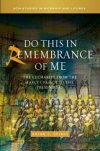
The fifth volume in the SCM Studies in Worship and Liturgy series will help to establish the series as a place for landmark books of liturgical scholarship. Aimed at undergraduate and graduate theology students, clergy, and theologically literate laity, Do This in Remembrance of Me assumes some technical knowledge, but attempts to outline what the evidence is, and what current scholars think.
Bryan Spinks’ book is an outstanding new manual on the historical development of the Eucharist. It is excellent not only because it connects liturgical texts and rituals with Eucharistic theologies, but also because of its wide range, varying from the New Testament data to current practice in East and West; from the early Anaphoras to present day Dutch table prayers and internet liturgies; and from the ancient Ethio-Eritrean tradition to contemporaneous Pentecostalism. Bryan Spinks displays great scholarship, investigating the primary sources in many regions, languages, and eras.
—Basilius J. Groen, professor of liturgy, University of Graz
Bryan D. Spinks is Bishop F. Percy Goddard Professor of Liturgical Studies and Pastoral Theology at the Yale Institute of Sacred Music and Yale Divinity School, and a priest of the Church of England. From 1986 to 2000 he served as a member of and consultant to the Church of England Liturgical Commission, helping to prepare Common Worship.
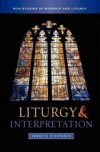
Interpretation and liturgy is a big subject, and one that is unlikely ever to go away. It is part of the twofold movement of divine initiative and human aspiration. Kenneth Stevenson, one of the UK’s leading liturgical scholars examines the importance of interpretation and liturgy, particularly in light of the growing impact in recent years of reception-history, and how this interacts not only with biblical scholarship, but with worship and doctrine as well.
The receiving and handing on of Christian tradition always entails adaptation and reconfiguration for the reception to be useful. These essays exemplify many facets of this ‘handing on,’ from the Lord’s Prayer, through sermons on and expositions of the Transfiguration, to the contributions of divines from Peter Chrysologus to Lancelot Andrewes and Michael Ramsey.
—Bryan D. Spinks, Goddard Professor of Liturgical Studies and Pastoral Theology, Yale Institute of Sacred Music and Yale Divinity School
This collection of essays is Kenneth Stevenson at his very best—showing a breadth and depth of theological and liturgical scholarship that few can equal, from New Testament texts and patristic homilies to classic figures of seventeenth-century Anglicanism and beyond. And yet all of this applied with a lightness of touch and with a pastoral sensitivity shaped by the years of his own ministry.
—Paul Bradshaw, professor of liturgy, University of Notre Dame
Kenneth Stevenson’s last book reads as the quintessential autobiography of a questing, restless, puckish scholar—a series of studies linking his chosen areas of liturgical scholarship, biblical interpretation, and the insights of the Caroline divines, all shot through with those humbling insights on the glory of transfiguration, brought him by his final, fatal illness.
—David Stancliffe, former bishop of Salisbury
Kenneth Stevenson was, until 2009, bishop of Portsmouth. He was also a fellow of the Royal Historical Society.
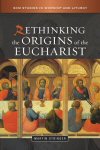
The Eucharist is the central act of Christian worship. In this book Martin Stringer brings together some of the scholarship associated with the sociological analysis of biblical texts into conversation with liturgists and historians of the first century. He analyzes the Eucharist and other early Christian meals from a detailed discussion of Paul’s first letter to the Corinthians, the most studied text in the sociological tradition of biblical scholarship. He proposes that the meal portrayed in chapter 11 of that letter is more likely to have been an annual event rather than a weekly one. He considers other texts, both biblical and those from the first 150 years or so of Christian history, and shows that the Eucharist is most likely to have been an invention of the Asian or Roman church in the second century AD.
Martin D. Stringer is professor of liturgical and congregational studies in the department of theology and religion in Birmingham.
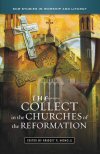
The Collect is a form of prayer which is a core part of the liturgical worship of most Christian traditions, certainly in the West. Yet, relatively little work has been done to reflect on the use of this common form of prayer in different traditions, and the Protestant tradition in particular. In this representative collection of essays, Bridget Nichols draws together a range of leading scholars who reflect on the history and the development of this form of prayer common to all churches of the western tradition. As well as offering a historical introduction, the book reflects on the Collect in the Methodist tradition, in Baptist worship, in Scandinavian Lutheran traditions, in American Lutheranism, and on Collect writing today.
The essays form a fascinating look at the history of the influence of various denominational liturgies on other traditions. . . . This focused study on one particular prayer form opens a window into the liturgical theology and worship practices across western Christendom.
—Mitzi J. Budde, head librarian and professor, Virginia Theological Seminary
Bridget Nichols is the lay chaplain to the Bishop of Ely.